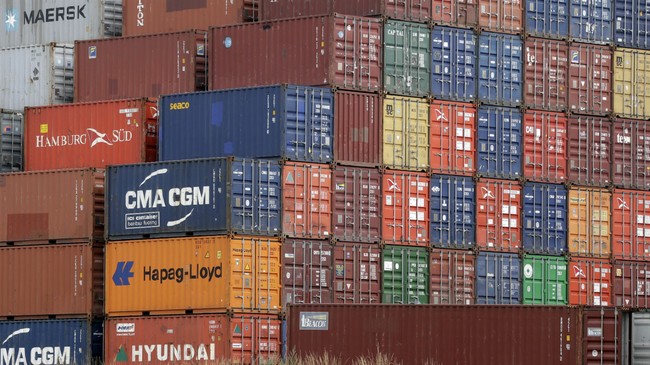
The term “Washington consensus” has been used for decades to describe widely held views among lawmakers regarding economic policy. Now, there is a new Washington consensus, a radical change in the views of elected officials in recent decades. It is important to understand the origin of these ideas and how they impact public policy.
The origin of the original Washington Consensus can be traced to the classical economists Adam Smith and David Ricardo. Classical economists laid the foundations for policies of free trade and investment in a global trading system. These ideas convinced the British government to reject mercantilism, and other countries, including the United States, followed the British lead. Policies of free trade and investment launched the era of modern economic growth in the 19th and early 20th centuries.
However, mercantilist policies were given new life in Germany under the “Iron Chancellor” Otto von Bismarck. Bismarck’s argument was that tariffs and other trade restrictions would protect Germany’s domestic market from the more industrialized British economy. Bismarck also believed that with the government picking winners and losers, Germany could promote rapid industrialization. What Bismarck’s policies proved is that mercantilist policies allowed the government to mobilize industries supporting the military.
This conflict in ideologies came to a head during the Great Depression. The United States rejected free trade, enacting the Smoot Hawley Act, which raised tariffs to the highest levels in history. As other countries responded with mercantilist policies, the global trading system collapsed, launching a decade of economic stagnation. Industrial policies allowed governments to mobilize industries in support of the military, just as they did in Bismarck’s Germany.
After World War II, the United States emerged as the dominant power in global trade and investment. Recognizing the failures of mercantilist policies pursued during the Great Depression, the United States led other countries in restoring free trade and investment in a global trading system. Free markets proved to be resilient in the transition from a wartime to a peacetime economy as the new era of free trade and investment was accompanied by rapid economic growth. Even authoritarian regimes such as Russia and China transitioned into market-oriented economies, actively participating in the global trading system.
Over the past two decades, however, a new Washington consensus has emerged. There is, in fact, nothing new about the new Washington consensus; mercantilist policies have been practiced for centuries. Political leaders protect domestic markets with tariffs and other trade restrictions and use industrial policies to pick winners and losers, promoting rapid industrialization. These mercantilist policies have been accompanied by a slowdown in international trade and investment and retardation in global economic growth. It is not surprising that mercantilist policies have again proven to be fertile ground for authoritarian governments and military conflict.
The United States is now leading other countries down the path of mercantilism, just as we did during the Great Depression. Higher tariffs and trade restrictions are designed to protect domestic industries, and the government pursues industrial policies subsidizing targeted industries. Attempting to pick winners and losers results in zombie enterprises dependent on government protection and support over the long term. Thus far, we have not experienced a collapse of global trade and investment such as that experienced during the Great Depression. But the geoeconomic fragmentation that has accompanied mercantilist policies is projected to significantly reduce global economic growth in coming years.
The new Washington consensus is a classic example of the shortsightedness in public policy. Mercantilist policies benefit a few industries and workers in the short term and help politicians supporting these policies to get elected. The disastrous impact of these mercantilist policies on global economic growth occurs over the long term, after these folks have left office.
The challenge now is to reaffirm U.S. commitment to free trade and investment in a global trading system. The new Washington consensus means that neither political party is willing to make this commitment. The commitment problem means that we can no longer leave these policies to the discretion of politicians.
The alternative is to ground principles of free trade and investment in constitutional and statutory law. This is the approach taken by the Swiss. This year, the Swiss eliminated tariffs on industrial imports entirely. This decision was based on a rigorous analysis showing the benefits of free trade for the Swiss economy through reduced costs for companies and increased productivity. The Swiss commitment to free trade is incorporated in their constitutional and statutory law.
Given the new Washington consensus, it is difficult to imagine Congress incorporating a commitment to free trade in our constitutional or statutory law. However, Article V gives citizens, as well as politicians, the power to propose amendments to the Constitution. An Article V amendment convention would allow citizens to craft an amendment committing the United States to free trade and investment. Statutory rules could impose guardrails precluding protectionist trade policies and industrial policies that allow politicians to pick wines and losers. With these constitutional and statutory laws in place, we could solve the commitment problem.
Barry Poulson ([email protected]) is a policy advisor with The Heartland Institute.
